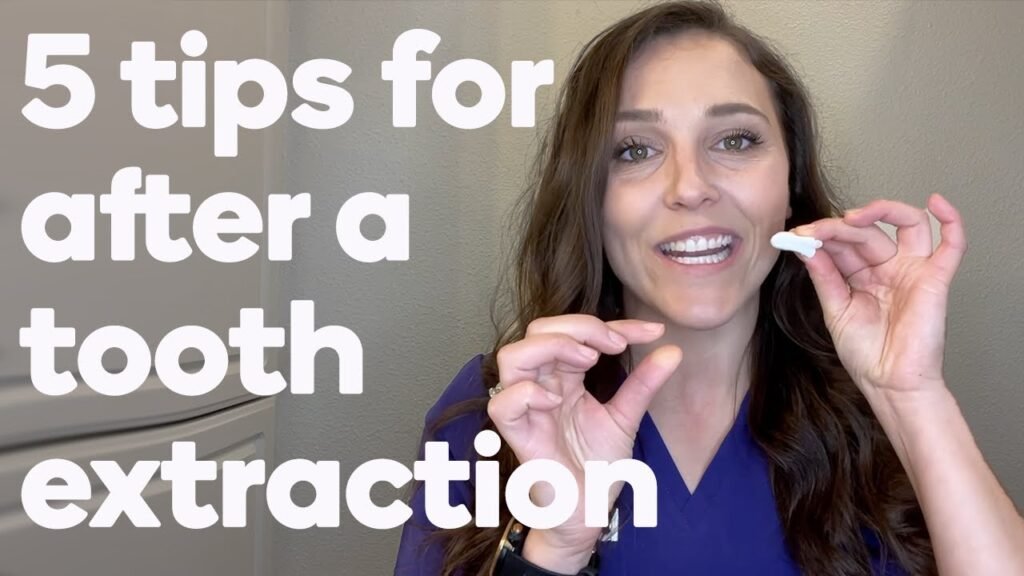After Extraction: Essential Steps for Post-Surgery Care

After undergoing a tooth extraction, it's important to take proper care of your mouth to ensure a smooth recovery process. From managing pain and swelling to avoiding certain foods, there are several steps you can take to promote healing and prevent complications. In this article, we will discuss what to do after extraction to help you navigate this crucial period with ease and maintain optimal oral health.
How long does it take for a tooth to heal after extraction?
After a tooth extraction, it typically takes about two weeks to start feeling back to normal. However, complete healing of the tooth socket can take three to four weeks. It is important to be cautious during this time to prevent any complications, such as infection, by keeping the area clean and avoiding any food debris from getting into the empty space left by the extracted tooth. By following these guidelines, you can ensure a smooth and successful healing process after your tooth extraction.
Can water be consumed after a tooth extraction?
Yes, you can drink water after a tooth extraction. It's important to stay hydrated for the healing process, but be mindful of not disturbing the blood clot. Avoid using a straw and swishing the water around too much in your mouth to prevent any complications.
Staying hydrated is crucial for the recovery process after a tooth extraction. You can drink water to keep yourself hydrated, but be sure to avoid disrupting the blood clot that forms in the extraction site. Refrain from using a straw and swishing water around in your mouth to ensure a smooth and successful healing process.
What should and should not be done post tooth extraction?
After a tooth extraction, it is important to follow the DO's for a smooth recovery. This includes using gauze to control bleeding, resting and elevating your head to reduce swelling, taking prescribed medications as directed, using ice packs to alleviate pain, and sticking to a soft foods diet for the first day or two. Following these tips will help promote healing and prevent complications.
On the flip side, there are certain DON'Ts to avoid after a tooth extraction. These include refraining from smoking, using straws, spitting, rinsing your mouth, blowing your nose or sneezing forcefully, and poking at the extraction site with your tongue. By following these guidelines and avoiding these actions, you can ensure a successful and comfortable recovery process.
Healing and Recovery: A Guide to Post-Surgery Care
After undergoing surgery, it is crucial to prioritize your healing and recovery. The first step in post-surgery care is to follow your doctor's instructions closely. This may include taking prescribed medications, attending follow-up appointments, and following specific dietary guidelines. By following these instructions, you can ensure that your body is receiving the necessary care and support for a successful recovery.
In addition to medical care, it is important to prioritize self-care during the post-surgery period. This can include getting plenty of rest, staying hydrated, and engaging in light physical activity as recommended by your healthcare provider. Taking care of your mental and emotional well-being is also essential for a full recovery. Engaging in activities that bring you joy and relaxation, such as reading, listening to music, or spending time with loved ones, can help alleviate stress and promote healing.
Lastly, it is important to be patient with yourself during the recovery process. Healing takes time, and it is normal to experience ups and downs along the way. It is important to listen to your body and give yourself the grace to heal at your own pace. By following these guidelines and prioritizing your well-being, you can set yourself up for a successful recovery and a return to a healthy, active lifestyle.
Navigating Post-Extraction Care: Dos and Don'ts
After a tooth extraction, it is crucial to follow proper post-extraction care to ensure a smooth and speedy recovery. Dos include keeping the extraction site clean by gently rinsing with warm salt water, avoiding vigorous rinsing or spitting, and taking prescribed medications as directed. It is also essential to stick to soft foods, such as yogurt and mashed potatoes, and avoid smoking or using a straw to prevent dislodging the blood clot.
On the other hand, there are some important don'ts to keep in mind during post-extraction care. These include refraining from touching the extraction site with your fingers or tongue, as this can introduce bacteria and delay healing. Additionally, it is crucial to avoid strenuous physical activities and hot foods or beverages that can irritate the extraction site. By following these dos and don'ts, you can navigate post-extraction care successfully and promote optimal healing.
Post-Surgery Wellness: Essential Tips for a Speedy Recovery
For a speedy recovery after surgery, it's essential to prioritize your wellness. Make sure to follow your doctor's post-surgery instructions, including taking any medications as prescribed and attending follow-up appointments. Additionally, focus on getting plenty of rest, staying hydrated, and eating nutritious foods to support your body's healing process. Gentle movement and light exercise can also aid in recovery, but be sure to avoid any activities that could strain your incision site. By taking care of your physical and emotional well-being, you can help ensure a smooth and successful recovery after surgery.
After a tooth extraction, it is important to follow the dentist's instructions for proper aftercare to ensure a smooth and speedy recovery. This includes resting, avoiding strenuous activities, taking prescribed medication, and maintaining good oral hygiene. By following these steps, you can minimize the risk of complications and promote healing. Additionally, be sure to attend any follow-up appointments with your dentist to monitor your progress and address any concerns. Taking these proactive measures will help you get back to feeling your best as quickly as possible.